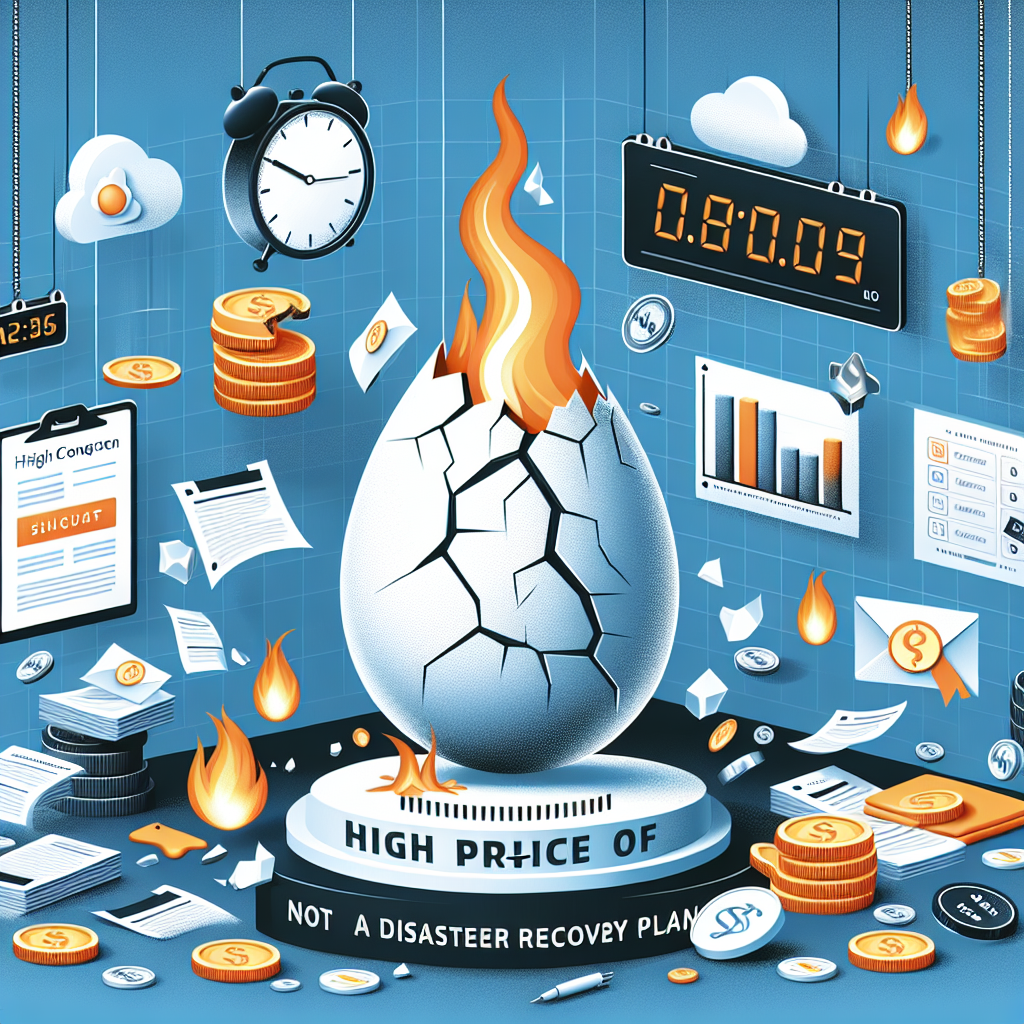Your cart is currently empty!
The True Cost of Not Having a Disaster Recovery Plan in Place

In today’s digital age, businesses rely heavily on their data and IT systems to operate efficiently and effectively. However, many companies fail to recognize the importance of having a disaster recovery plan in place until it’s too late. The true cost of not having a disaster recovery plan can be devastating, both financially and in terms of reputation.
First and foremost, the financial cost of not having a disaster recovery plan can be significant. In the event of a data breach, system failure, or natural disaster, businesses may lose valuable data, experience downtime, and incur additional expenses to recover and rebuild their systems. According to a study by the Ponemon Institute, the average cost of a data breach in 2020 was $3.86 million, with costs increasing for larger organizations. Without a disaster recovery plan in place, businesses risk losing revenue, customers, and even going out of business altogether.
Furthermore, the reputational cost of not having a disaster recovery plan can be equally damaging. In today’s highly competitive market, customers expect businesses to protect their data and ensure the continuity of their services. A data breach or system failure can lead to negative publicity, loss of customer trust, and damage to a company’s reputation. This can result in long-term consequences, including loss of customers, difficulty attracting new business, and ultimately, a decline in revenue.
In addition to the financial and reputational costs, businesses without a disaster recovery plan may also face legal and regulatory repercussions. With the increasing emphasis on data privacy and security laws, such as the General Data Protection Regulation (GDPR) and the California Consumer Privacy Act (CCPA), companies are required to protect and secure their data. Failure to do so can result in costly fines, lawsuits, and legal penalties.
Overall, the true cost of not having a disaster recovery plan in place can be catastrophic for businesses. It is essential for companies to invest in a comprehensive and effective disaster recovery plan to protect their data, systems, and reputation. By proactively preparing for potential disasters and implementing a robust recovery plan, businesses can mitigate the risks and ensure the continuity of their operations in the face of unforeseen events. Remember, it’s not a matter of if a disaster will strike, but when – so it’s better to be prepared than to suffer the consequences of being caught off guard.

Leave a Reply